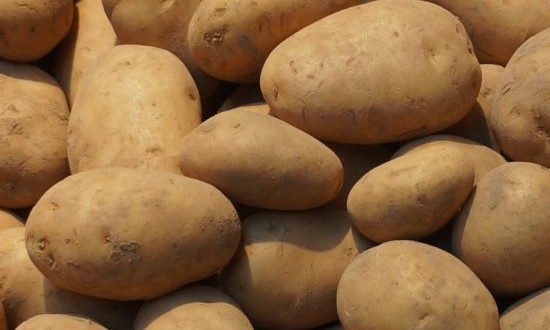From french fries to gnocchi, potatoes are a beloved – and much maligned – part of the Western diet.
And while watching your intake is good, you might not want to completely skip the spuds just yet.
According to researchers from McGill University in Montreal, potato extract might curb weight gain from a high-fat, high-carb diet.
Investigators fed mice an obesity-inducing diet for 10 weeks. The results soon appeared on the scale: mice that started out weighing on average 25 grams put on about 16 grams. But mice that consumed the same diet but with a potato extract gained much less weight: only 7 more grams. The benefits of the extract are due to its high concentration of polyphenols, a beneficial chemical component from the fruits and vegetables we eat.
“We were astonished by the results,” said Prof. Luis Agellon, one of the study’s authors. “We thought this can’t be right – in fact, we ran the experiment again using a different batch of extract prepared from potatoes grown in another season, just to be certain.”
The rate of obesity due to over-eating continues to rise in Canada, affecting 1 in every 4 adults. Obesity increases the risk of cardiovascular disease and cancer. According to this study, potato extracts could be a solution for preventing both obesity and type 2 diabetes.
Extract derived from 30 potatoes
“The daily dose of extract comes from 30 potatoes, but of course we don’t advise anyone to eat 30 potatoes a day,” says Stan Kubow, principal author of the study, “as that would be an enormous number of calories.” What the investigators envisage instead is making the extract available as a dietary supplement or simply as a cooking ingredient to be added in the kitchen.
Popularly known for its carbohydrate content, the potato is also a source of polyphenols. “In the famous French diet, considered to be very healthy, potatoes – not red wine – are the primary source of polyphenols,” says Kubow. “In North America, potatoes come third as a source of polyphenols – before the popular blueberries.”
A low-cost solution
“Potatoes have the advantage of being cheap to produce, and they’re already part of the basic diet in many countries,” Kubow explains. “We chose a cultivated variety that is consumed in Canada and especially rich in polyphenols.”
En route to the airport one day to catch the same flight, Stan Kubow, Associate Professor in the School of Dietetics and Human Nutrition and an expert on polyphenols, and Danielle Donnelly, Associate Professor in the Department of Plant Science and an expert on potatoes, had the bright idea of crossing their research interests, and together with Prof. Agellon, they carried out this study.
Although humans and mice metabolize foods in similar ways, clinical trials are absolutely necessary to validate beneficial effects in humans. And the optimal dose for men and women needs to be determined, since their metabolisms differ.
Agencies/Canadajournal
 Canada Journal – News of the World Articles and videos to bring you the biggest Canadian news stories from across the country every day
Canada Journal – News of the World Articles and videos to bring you the biggest Canadian news stories from across the country every day



